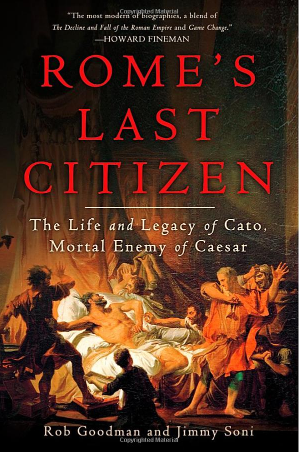- HOME
- INTRO TO THE FORUM
- USE AND MISUSE
- BADLY WRITTEN, BADLY SPOKEN
- GETTING
TO KNOW ENGLISH - PREPARING FOR ENGLISH PROFICIENCY TESTS
- GOING DEEPER INTO ENGLISH
- YOU ASKED ME THIS QUESTION
- ADVOCACIES
- EDUCATION AND TEACHING FORUM
- ADVICE AND DISSENT
- MY MEDIA ENGLISH WATCH
- STUDENTS' SOUNDING BOARD
- LANGUAGE HUMOR AT ITS FINEST
- THE LOUNGE
- NOTABLE WORKS BY OUR VERY OWN
- ESSAYS BY JOSE CARILLO
- Long Noun Forms Make Sentences Exasperatingly Difficult To Grasp
- Good Conversationalists Phrase Their Tag Questions With Finesse
- The Pronoun “None” Can Mean Either “Not One” Or “Not Any”
- A Rather Curious State Of Affairs In The Grammar Of “Do”-Questions
- Why I Consistently Use The Serial Comma
- Misuse Of “Lie” And “Lay” Punctures Many Writers’ Command Of English
- ABOUT JOSE CARILLO
- READINGS ABOUT LANGUAGE
- TIME OUT FROM ENGLISH GRAMMAR
- NEWS AND COMMENTARY
- BOOKSHOP
- ARCHIVES
Click here to recommend us!
TIME OUT FROM ENGLISH GRAMMAR
This section features wide-ranging, thought-provoking articles in English on any subject under the sun. Its objective is to present new, mind-changing ideas as well as to show to serious students of English how the various tools of the language can be felicitously harnessed to report a momentous or life-changing finding or event, to espouse or oppose an idea, or to express a deeply felt view about the world around us.
The outstanding English-language expositions to be featured here will mostly be presented through links to the websites that carry them. To put a particular work in better context, links to critiques, biographical sketches, and various other material about the author and his or her works will usually be also provided.
Highly principled, infuriatingly stubborn politician fighting tyranny
Despite a deeply flawed reputation owing to his fabled garrulousness and hypocrisy as well as frequent scandalous public behavior, the Roman politician Marcus Porcius Cato—better known as Cato the Younger—became an inspiration to America’s Founding Founders for his steadfast but ultimately unavailing defense of the Roman Republic against Julius Caesar’s tyrannical regime. It is largely for this reason that in a new biography, Rome’s Last Citizen: Life and Legacy of Cato, Mortal Enemy of Caesar (Thomas Dunne Books, 384 pages), the authors Rob Goodman and Jimmy Soni are holding up this soldier, senator, and Stoic in ancient Rome as a cautionary figure for America today as it grapples with a harshly divided and bitterly combative national government.

From the few extant sources that give fragmented accounts of Cato’s extraordinary life, Goodman and Soni have cobbled a portrait of a highly principled but infuriatingly stubborn politician waging war against endemic political corruption, tangling with powerful and rapacious dynastic elites, grappling with debt crisis after debt crisis, and fighting terrorists bent on dismembering the Roman Republic. They contend that understanding Cato and the many legends surrounding him can promote a better understanding of the current American political climate and of contemporary notions of freedom.
In another forum, Goodman and Soni further explicate the kind of man that Cato became in the Roman world: “Becoming a self-made man didn’t require Cato to turn wildly countercultural. It simply gave him the freedom to examine the dominant culture with clear eyes—and when he deliberately rejected parts of that culture, he left a lasting impression. In a city of conspicuous consumption, he lived simply and frugally, even though he inherited great wealth. In a political culture that winked at bribery, corruption, and election-buying, he kept his hands clean. He pioneered a theatrical form of civil disobedience: on a number of occasions, Cato won popular acclaim by forcing his enemies to arrest or physically silence him.”
Read “War Games,” an excerpt from Goodman and Soni’s Rome’s Last Citizen at BarnesandNoble.com now!
Read “Cato: Lessons From a Self-Made Man” by Rob Goodman and Jimmy Soni now!
ABOUT THE AUTHORS:
Rob Goodman, former speechwriter for House Majority Leader Steny Hoyer and Senator Chris Dodd, wrote speeches and opinion pieces that appeared on the floors of both houses of Congress, on national television and radio, and in The New York Times, The Washington Post, and The Wall Street Journal. Jimmy Soni, managing editor of The Huffington Post, is a former speechwriter whose writing and commentary have appeared in The Atlantic online and on NPR, among other outlets.
ANOTHER INTERESTING READING:
In “Writers should take a year off, and give us all a break,” an article that came out in the August 16, 2013 issue of The Guardian UK, British publisher Colin Robinson proposes a writers’ moratorium of, say, 12 months to effectively halt the deluge of writing that, he says, paradoxically contributes to declining readership. “It’s not just that if you’re writing then you can’t be reading,” he says. “It’s also that the sheer volume of what is now available acts as a disincentive to settle down with a single text.” But what good will the writing stoppage do? Robinson has this answer: “Just think what could be done with the free time: books we’ve loved could be revisited; philosophy or poetry could be afforded the time they demand; tomes of previously forbidding length could be tackled with languorous leisure.”






